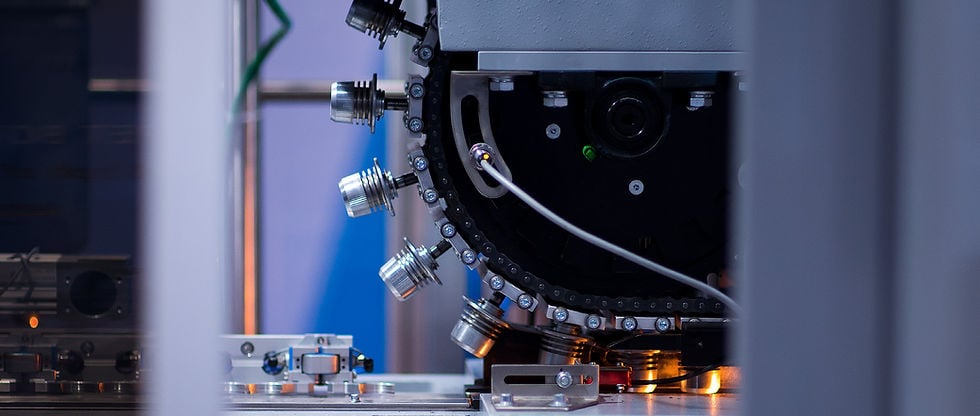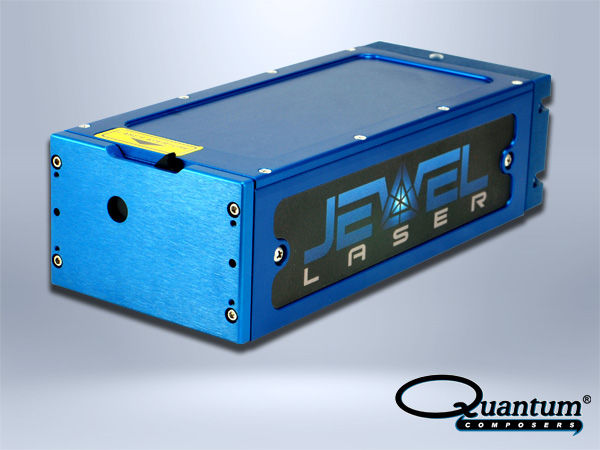Share this
Promising News for Reducing Environmental Waste: LIBS in Material Science
June 4, 2020

Utilizing Lasers in LIBS Material Science, An Exploratory Paper by Quantum Composers
The Challenge
As our nation’s recycled surplus grows, so does the need for increased efficiency
in identifying and sorting the goods to remove contaminants and prepare
the materials for disposal or resale. Research in materials science is exploring
applications for Laser Induced Breakdown Spectroscopy (LIBS) to improve
technology in recycling separation.
Recyclable goods have grown by more than 10x since the 1970s, resulting in
millions of tons of recyclable materials each year sent to 2,000 recycling facilities
around the world. Until recently, most of the recycling was sent to China, but
in 2019, China enacted the National Sword policy which specifically banned 24
types of recycled commodities and lowered the allowable contamination levels
to .05% (previously at 3-5%). The policy caused industry-wide disruption, banned
the import of plastics, and created a backlog of recyclable goods, the majority
of which is now sent to landfills. Consumers helped bear the weight of onshoring
the goods – their costs rose 11% in 2019. As Americans continue to produce 4.5
pounds of waste per day each, and many city and state governments tighten
recycling laws, the pressure is on to reduce the size of the mountain.
LIBS Applications in Research & Industry
LIBS is an atomic-emission spectroscopy technique that enables rapid chemical
analysis of a wide range of materials ranging from metals, semiconductors, glasses,
biological tissues, plastics, soils, thin-paint coating, and electronic materials.
Over the past decade, research and development efforts have yielded significant
advancements in LIBS technology. Three recent emerging applications for LIBS
to improve waste handling include: High-speed sorting, High-grade recycling of refractory waste, and e-waste recovery.

Photonics Solutions
Researchers are increasingly exploring LIBS as an approach to reducing materials waste. Quantum Composers’ 9520 pulse generator was recently used in a LIBS experiment to demonstrate the effective use of pulsed electric discharge in the recycling of metal coated plastics. The industry is also on the search for smaller sized and more economic laser systems. The quantum composers Jewel lasers are designed to meet this need, offering a compact, affordable integrated DPSS ND:YAG laser for easy integration into LIBS systems.
Learn more about interesting LIBS applications in our white paper, Laser Induced Breackdown Spectroscopy (LIBS) in Material Science.
Visit quantumcomposers.com to learn more about our products for LIBS.
Share this
- photonics (19)
- Lasers (12)
- DPSS Lasers (10)
- pulse delay generator (8)
- pulse generator (8)
- LIDAR (4)
- Lasers and Optics (4)
- Technology (4)
- Laboratory Science (3)
- Nd:YAG Lasers (3)
- PIV (3)
- Science (3)
- Spectroscopy (3)
- custom laser systems (3)
- Aerospace studies (2)
- Commercial Lasers (2)
- LIBS (2)
- Laser Induced Breakdown Spectroscopy (2)
- Laser Research (2)
- Laser Science (2)
- Particle Image Velocimetry (2)
- Pulsed Lasers (2)
- custom lasers (2)
- laser ablation (2)
- laser system (2)
- Biotech (1)
- COVID (1)
- Cancer (1)
- Cancer Diagnostics (1)
- Cancer Research (1)
- Current Generators (1)
- Dentistry (1)
- Emerald Pulse Generator (1)
- Flame Kernel (1)
- High Current Pulse Generator (1)
- Ignition and Combustion (1)
- Ignition flame kernel (1)
- Laser Dentistry (1)
- Laser Manufacturing (1)
- Laser Soldering (1)
- Laser Tooth (1)
- Laser aerospace (1)
- Laser photonics (1)
- MDA (1)
- Mass Spectroscopy (1)
- Micro Soldering (1)
- PIV Laser (1)
- Physics (1)
- Research (1)
- Surface mounted technology (1)
- ablation (1)
- artemis nasa (1)
- blue lasers (1)
- delay generator (1)
- er marketing (1)
- laser attenuator (1)
- laser modules (1)
- laser quality (1)
- laser sales and marketing (1)
- laser synchronizer (1)
- lasers for botanical safety (1)
- lasers for cannabis (1)
- lasers purity (1)
- lasers space (1)
- lunar mission 2021 (1)
- lunar missions (1)
- nasa lasers (1)
- nasa payload (1)
- oem lasers (1)
- photonics sales and marketing (1)
- system synchronizer (1)
- February 2024 (1)
- October 2023 (1)
- December 2022 (1)
- November 2022 (2)
- July 2022 (1)
- May 2022 (1)
- March 2022 (1)
- January 2022 (1)
- December 2021 (2)
- November 2021 (2)
- September 2021 (1)
- August 2021 (1)
- July 2021 (2)
- June 2021 (1)
- May 2021 (2)
- April 2021 (1)
- March 2021 (3)
- February 2021 (1)
- January 2021 (2)
- December 2020 (1)
- November 2020 (2)
- October 2020 (2)
- September 2020 (4)
- August 2020 (3)
- July 2020 (3)
- June 2020 (4)
- May 2020 (2)
- April 2020 (6)
- March 2020 (3)
- February 2020 (3)
- December 2019 (2)
- November 2019 (3)
- October 2019 (2)
- September 2019 (1)
- August 2019 (2)
- May 2019 (1)
- April 2019 (1)
- February 2019 (1)
- October 2018 (2)
- September 2018 (2)
- August 2018 (2)
- July 2018 (1)
- June 2018 (1)
- April 2018 (1)
- March 2018 (1)
- February 2018 (1)
- January 2018 (1)
- December 2017 (2)
- September 2017 (3)
- July 2017 (2)
- June 2017 (2)
- March 2017 (4)
- January 2017 (2)
- November 2016 (2)
- September 2016 (2)
- August 2016 (1)
- May 2016 (1)
- April 2016 (1)
- March 2016 (2)
- December 2015 (2)
- October 2015 (2)
- September 2015 (1)
